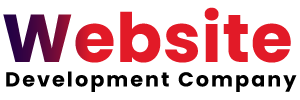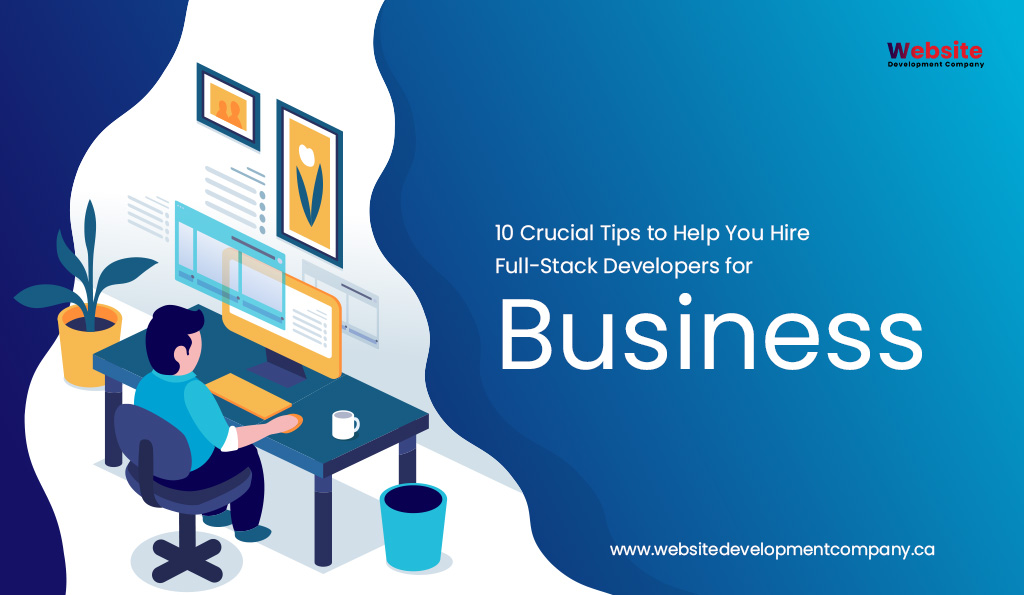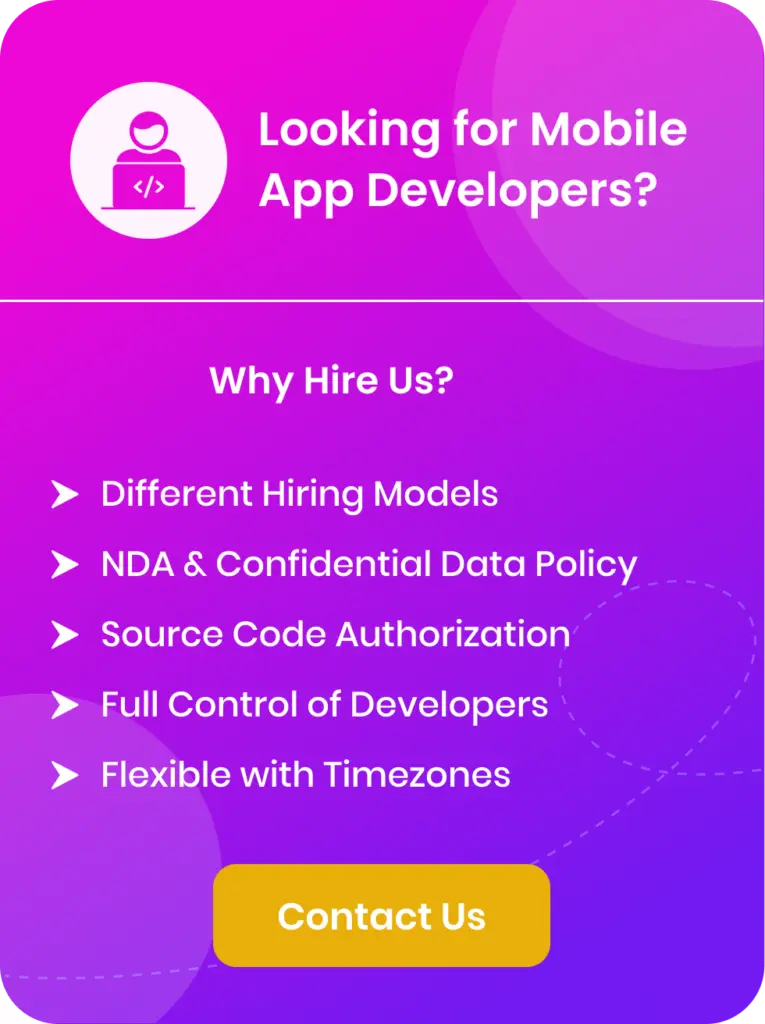In the current technologically-driven environment full-stack developers have emerged as indispensable assets for businesses across all industries and sizes. These professionals have the expertise and skills to tackle both front-end and back-end tasks. This makes them essential to creating and maintaining web-based applications and digital platforms. But, finding the best full-stack developer could be difficult. To aid you through this difficult process Here are ten essential guidelines to keep in mind when you are hiring full-stack developers to your company.
1. Define Your Project’s Requirements
Before you begin searching in the search for an experienced full-stack programmer it’s crucial to be aware of the project’s needs. Establish the scope, objectives and the specific tasks the developer is accountable for. This will enable you to determine the required skills and experience needed by the person you are considering.
2. Understand the Full-Stack Developer’s Skill Set
Full-stack developers must be skilled in the back-end and front-end technologies. On the front end, they must be proficient in HTML, CSS, and JavaScript along with familiarity with popular frameworks such as React, Angular, or Vue.js. On the back-end, they must be proficient in programming languages for servers like Node.js, Python, Ruby or Java and be familiar working with databases such as MySQL, PostgreSQL, or MongoDB.
3. Evaluate Their Portfolio
A solid portfolio is a reliable indication of the abilities of a full-stack development professional. Examine their previous projects to evaluate whether their efforts are of high quality, their capacity to manage a variety of technologies as well as their problem-solving capabilities. Seek out projects that align with your company’s requirements and goals.
4. Assess Problem-Solving and Critical Thinking
Full-stack development usually involves solving difficult problems and making choices which affect the project’s success. During interviews make sure to present candidates with real-world scenarios or code issues to test their critical thinking and problem-solving skills. This will allow you to gauge their ability to handle unexpected challenges.
5. Check for Relevant Certifications
While certifications don’t necessarily provide an indication of developer’s competence, they do give some confidence in their experience and commitment to keep up-to-date with the latest industry standards. Check for certifications in relation to the technologies and frameworks that your project needs.
6. Consider Experience and Expertise
Experience is a key factor in the ability of a full-stack developer to manage complex projects efficiently. While junior developers might be more cost-effective but more experienced developers typically possess a greater knowledge of the best practices, scalability, as well as efficient code. Assessing whether your project needs an experienced professional or the junior developer will be sufficient.
7. Assess Communication and Collaboration Skills
Collaboration and communication is crucial for any developer, particularly full-stack ones who have to collaborate with non-technical and technical team members. During the interview, evaluate the ability of a candidate to communicate tech-related concepts in a simple and understandable way. Additionally, consider their willingness to cooperate and adjust to the dynamics of your team.
8. Conduct Technical Interviews
Technical interviews are an essential element of the hiring process of full stack programmers. They can consist of programming exercises, algorithm-related challenges or discussion about particular technical issues that are pertinent to your particular project. You can tailor the questions for your interview to determine the level of proficiency of the candidate in the tools and technologies you’re planning to employ.
9. Consider Cultural Fit
Employing a full-stack developer who is in sync with the company’s culture is vital to ensure a positive work environment. Find out if the candidate is a good fit with the company’s values as well as work ethic and overall mission. Cultural compatibility can contribute to long-term satisfaction in the workplace and retention.
10. Evaluate Soft Skills
In addition to the technical aspects Full-stack developers need the soft skills, such as adaptability, creative thinking, as well as the ability to be able to absorb information quickly. These skills are crucial in the ever-changing and fast-paced technology world. During an interview be sure to inquire about experiences which demonstrate their ability to adapt and desire to learn.
Hiring Full Stack Developers: Finding the Right Talent for Your Team
In today’s fast-paced digital landscape, full stack developers have become indispensable assets for companies of all sizes and industries. These versatile professionals possess a unique combination of skills, enabling them to handle both front-end and back-end development tasks seamlessly. Whether you’re a startup looking to build your first product or an established enterprise seeking to enhance your online presence, hiring full stack developers can be a game-changer for your organization. This article explores the importance of full stack developers, the challenges of hiring them, and how iTechnolabs can help you find the right talent to meet your development needs.
The Role of Full Stack Developers
Before diving into the hiring process, it’s crucial to understand what full stack developers bring to the table. A full stack developer is a well-rounded professional who can work on both the client-side (front-end) and server-side (back-end) of web developing service . Their skills encompass a wide range of technologies and programming languages, making them versatile and adaptable. Here are some key responsibilities and skills associated with full stack developers:
1. Front-End Development:
- HTML/CSS: Creating and styling web page layouts.
- JavaScript: Implementing interactive elements and user interfaces.
- Responsive Design: Ensuring that websites work seamlessly on various devices and screen sizes.
- Front-End Frameworks: Proficiency in frameworks like React, Angular, or Vue.js for building dynamic web applications.
2. Back-End Development:
- Server-Side Programming: Developing the server logic that handles requests and data processing.
- Databases: Working with databases, such as MySQL, MongoDB, or PostgreSQL, for data storage and retrieval.
- APIs: Building and integrating APIs to connect the front-end and back-end components.
- Security: Implementing security measures to protect against common web vulnerabilities.
3. DevOps and Deployment:
- Version Control: Using tools like Git for code versioning and collaboration.
- Deployment: Deploying applications to various hosting platforms, like AWS, Azure, or Heroku.
- Continuous Integration/Continuous Deployment (CI/CD): Automating the development workflow for faster and more reliable releases.
4. Problem Solving and Collaboration:
- Debugging: Diagnosing and resolving issues in both front-end and back-end code.
- Collaboration: Working effectively with other team members, including designers, product managers, and other developers.
- Problem Solving: Finding innovative solutions to technical challenges and optimizing existing code.
The Growing Demand for Full Stack Developers
The demand for full stack developers has surged in recent years due to several factors:
1. Cost-Efficiency:
Hiring a full stack developer with expertise in both front-end and back-end technologies can be more cost-effective than hiring separate specialists for each role. This versatility allows companies to streamline their development teams and budgets.
2. Faster Development Cycles:
Full stack developers can work on multiple aspects of a project, reducing bottlenecks in development timelines. They can take ownership of entire features or projects, leading to quicker delivery.
3. Flexibility and Adaptability:
In a rapidly evolving tech landscape, full stack developers are adaptable. They can switch between different technologies and frameworks as needed, making them valuable assets for companies looking to stay competitive.
4. Startups and Small Businesses:
For startups and small businesses, full stack developers are often the go-to choice because they can handle various tasks, from building MVPs (Minimum Viable Products) to scaling up products as the company grows.
Challenges in Hiring Full Stack Developers
While the benefits of hiring full stack developers are evident, finding and attracting the right talent can be a challenging endeavor. The following are some common challenges faced by organizations when hiring full stack developers:
1. Skill Set Variability:
Not all full stack developers have the same skill set. Some may be stronger in front-end technologies, while others excel in back-end development. Identifying the right balance of skills for your project is crucial.
2. Competitive Market:
The demand for full stack developers has led to increased competition among companies, resulting in higher salary expectations. Attracting top talent while staying within budget can be tough.
3. Technical Assessments:
Evaluating the technical proficiency of full stack developers can be challenging. Traditional interviews and coding tests may not provide a comprehensive view of their abilities.
4. Retention and Career Growth:
Once you’ve hired full stack developers, retaining them and providing opportunities for career growth are vital to keep them engaged and motivated.
How iTechnolabs Can Help You Find Full Stack Developers
iTechnolabs is a leading IT staffing and recruitment agency with a track record of connecting businesses with top-tier technical talent. Our specialized approach to full stack developer recruitment can help you overcome the challenges mentioned above and streamline the hiring process. Here’s how we can assist your organization in finding the right full stack developers:
1. Tailored Recruitment Solutions:
We understand that each company has unique requirements. Our team will work closely with you to identify your specific needs, including the technologies and skill sets required for your project. This ensures that we source candidates who are the best fit for your organization.
2. Extensive Talent Network:
iTechnolabs has a vast network of full stack developers with diverse expertise. We leverage this network to connect you with candidates who not only meet your technical requirements but also align with your company culture and values.
3. Rigorous Screening Process:
Our recruitment process includes comprehensive technical assessments, interviews, and reference checks to evaluate candidates thoroughly. We ensure that the developers we recommend have the skills and experience needed to excel in your organization.
4. Cost-Effective Solutions:
We understand the importance of budget constraints. iTechnolabs offers competitive pricing models and flexible payment options, allowing you to access top talent without breaking the bank.
5. Streamlined Hiring Process:
We aim to make the hiring process as efficient as possible. Our team will handle the logistics of scheduling interviews, managing candidate feedback, and coordinating offers, so you can focus on what you do best – running your business.
6. Post-Hire Support:
Our commitment doesn’t end with the placement of a full stack developer. We provide post-hire support to ensure a smooth onboarding process and offer guidance on how to nurture and retain top talent.
7. Continuous Talent Pipeline:
iTechnolabs maintains a continuous talent pipeline, allowing us to quickly source additional full stack developers as your project or team grows. This ensures that your organization can scale up smoothly without compromising on quality.
The process of hiring full-stack developers for your company could be a daunting task. However, by implementing these 10 essential tips, you can simplify the process and improve your chances of finding the perfect candidate. Make sure you define the project’s requirements, analyze the developer’s capabilities and portfolio and take into consideration things like the experience, qualifications and cultural compatibility. By paying attention to both soft and technical abilities and knowledge, you’ll be able to make an informed hiring choice which will benefit your business over the long term.



